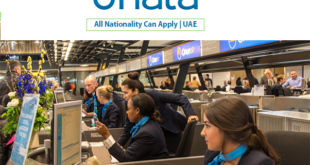
United Arab Emirates University
United Arab Emirates University Careers – JOBS in UAE
List of Opening Vacancies in United Arab Emirates University Careers:
- Assistant Professor/Associate Professor
- Associate Professor in Sociology
- Assistant/Associate Professor Speech Language Pathology.
- Assistant Professor in Surveying and Geomatics
- Assistant Professor
- Instructor in Urban Planning
- Assistant/Associate/Full Professor in Public Health
- Faculty all ranks
- Associate Professor in Translation Studies
- Procurement Officer
- International Student Advisor
- Residence Life Coordinator
- Diversity and Inclusion Coordinator
- Facilities Maintenance Technician
- Health Services Coordinator
- Sustainability Officer
- Alumni Relations Coordinator
- Human Resources Specialist
- Campus Security Officer
- Events Coordinator
- Marketing Specialist
- Communications Officer
To apply for this job please visit jobs.uaeu.ac.ae.
 www.indeed1.com Jobs from all around the world
www.indeed1.com Jobs from all around the world





